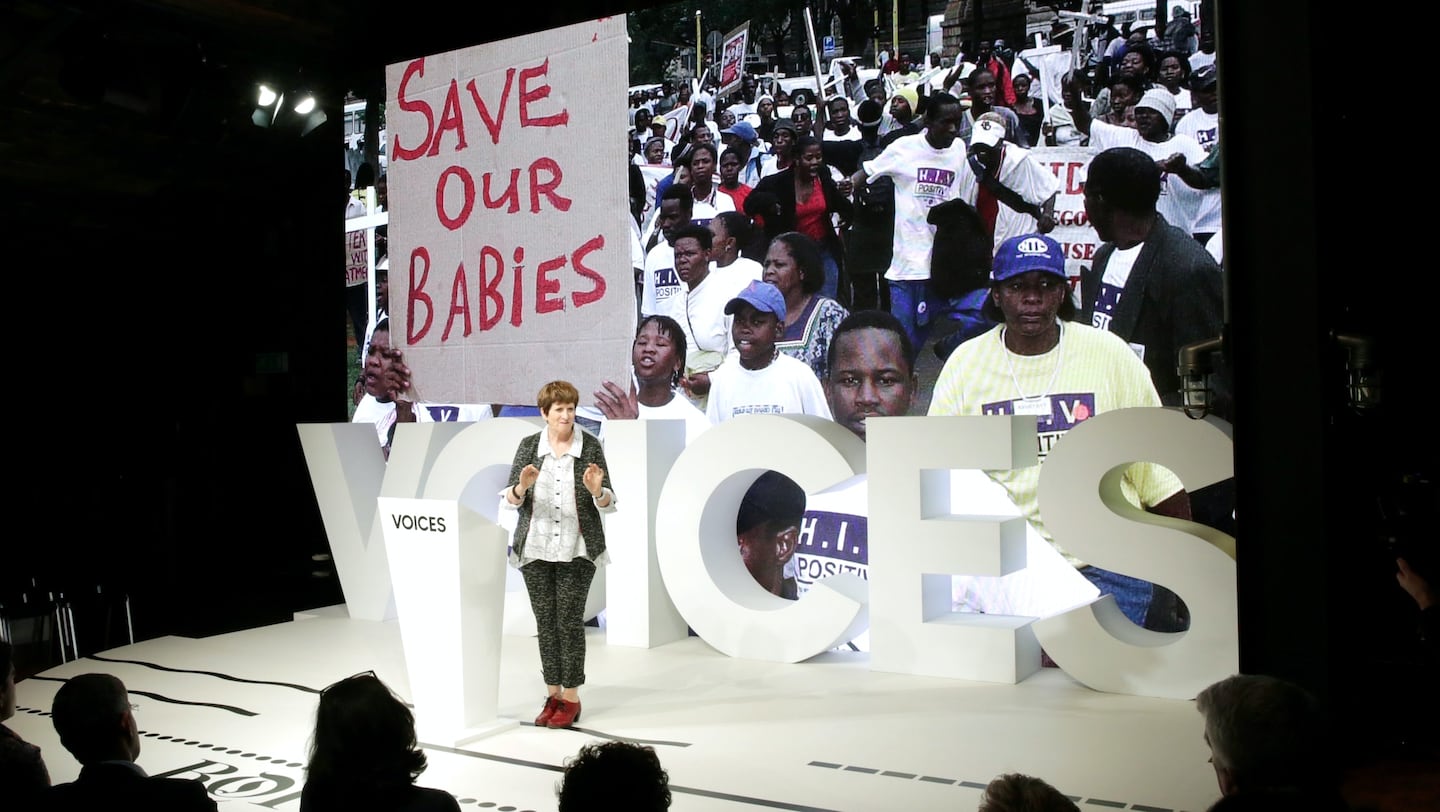
The Business of Fashion
Agenda-setting intelligence, analysis and advice for the global fashion community.

Agenda-setting intelligence, analysis and advice for the global fashion community.

OXFORDSHIRE, United Kingdom — When the Universal Declaration of Human Rights, a document affirming the rights and freedoms of all people, was drafted in 1948, fewer than 50 countries co-signed the legal text. Today, 193 countries affirm it.
"That the promise is poorly kept brings no shame to the promise," said Kate Gilmore, the deputy high commissioner for human rights at the UN Human Rights Office, at VOICES, BoF's annual gathering for big thinkers in partnership with QIC Global Real Estate, in a powerful presentation that ended in a standing ovation.
Gilmore reflected on the nature of human dignity and discrimination in the eyes of the global law in the 70 years since the historic declaration was drafted over the course of 181 meetings, resulting in 165 resolutions.
“What was extraordinary about the Universal Declaration of Human Rights [is that] we didn’t need it to be told we had rights,” said Gilmore. “We needed it to be told you had rights; that I hold my rights only to the extent that they don’t encroach on your rights.”
Human rights are a relationship between the powerful and the powerless, she said, an “operating manual,” that is both insufficient and essential. “How are they to be carried forward in a world that seeks in many ways to undo the 1948 global consensus?”
In times of such uncertainty… the question is: Who are you?
Gilmore said that after the financial crisis of 2008, inequality has deepened and tax havens have expanded, with more than $30 trillion in private financial wealth hidden in secret jurisdictions and $2 trillion lost to corruption each year.
“That’s ten times the amount available to overseas development aid,” she said.
In addition, the impunity of the most powerful members of society is eroding our trust in one another, Gilmore said, calling on an end of the “public lies told told as if public truths by public leaders.”
“The #MeToo story is the importance of bringing human rights home fro, the courtroom to the boardroom to the classroom to the bedroom,” she said, underscoring the important of media sources that value facts and an educated public that can inform and protect itself from falsehoods.
Gilmore left the VOICES audience with a call to trail-blaze in a different sense of the word: to speak up, to shine forth. “In times of such uncertainty… the question is: Who are you?” she said. “We’ve got to blaze more brightly.”
To learn more about VOICES, BoF’s annual gathering for big thinkers, visit our VOICES website, where you can find all the details on our invitation-only global gathering, in partnership with QIC Global Real Estate.
From analysis of the global fashion and beauty industries to career and personal advice, BoF’s founder and CEO, Imran Amed, will be answering your questions on Sunday, February 18, 2024 during London Fashion Week.
The State of Fashion 2024 breaks down the 10 themes that will define the industry in the year ahead.
Imran Amed reviews the most important fashion stories of the year and shares his predictions on what this means for the industry in 2024.
After three days of inspiring talks, guests closed out BoF’s gathering for big thinkers with a black tie gala followed by an intimate performance from Rita Ora — guest starring Billy Porter.